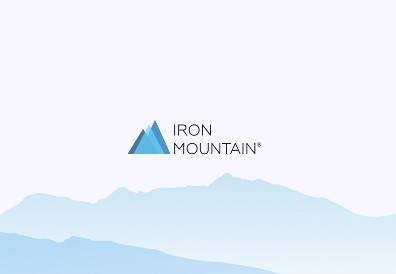Elevate the power of your work
Get a FREE consultation today!
The mortgage industry has long relied on physical documents and in-person meetings to conduct business, meet clients, and close loans. But the COVID-19 pandemic upended this model, as it did with countless other industries. The pandemic forced mortgage professionals to quickly transition and adapt to work-from-home and hybrid environments, learning and integrating new technologies for virtual interactions and e-closings.

During the pandemic, mortgage activity surged with a boom in home sales and low-interest rates. Further, the combination of rapidly increasing origination volumes and manual process restrictions caused by limited consumer interaction has pushed the industry to build workflow solutions driven by data rather than paper. In addition, machine learning capabilities have rapidly expanded to support document recognition and data extraction. These features are balanced by a "human in the loop" process that ensures quality and exception management. Such advances have helped to accelerate the mortgage content journey from physical to digital.
According to a new Quarterly Forecast released by Chief Economist Sam Khaterto of Freddie Mac, home purchase mortgage originations are expected to increase from 1.9 trillion in 2021 to $2.1 trillion in 2022 and $2.2 trillion in 2023. Notably, Fannie Mae estimated that online mortgage applications rose from 7% to 12% in the second year of the pandemic.
This translated into a rapid increase of mortgage documents in a primarily digital format supported by a remote-worker environment, while maintaining space for pre-pandemic physical files. Even with the COVID-accelerated adoption of e-closings, digital closings are still less than 10% of today's origination. The industry's ongoing dependence on paper requires a digitization plan that converts paper to images, and then to structured data. This conversion will fuel a hybrid delivery environment that a remote workforce can leverage. The key is to have a plan that deals with a hybrid environment, whether the transition to digital occurs rapidly or over time.
As a starting point, most mortgage companies store files by loan number or another unique identifier, with each file having its destruction eligibility date. If the file management system does not organize files by destruction eligibility year, the company runs the risk of holding onto documents for too long. In this situation, retention compliance means allocating the resources to sort through and find the files manually.
Poor document management can slow a company down at its most basic level, making it harder to find crucial information necessary to create and manage loans. Holding onto excess documents long past their retention date can also add unnecessary warehouse and cloud service storage costs.
In the worst case, mishandled files can lead to serious compliance failures. In fact, one major bank was recently fined $250 million due to document mishandling, among other issues. An event like this is a reminder that mortgage companies must find a way to avoid such complications by adequately organizing and managing files.
With an expected increase in 2022 M&A activity, multiple legacy file populations merging and consolidating to a single point of accountability intensifies the challenge. These factors cause mortgage companies to lose sleep and doubt whether they truly understand which files the government and other agencies will hold them responsible for.
Many mortgage companies realize that getting a handle on their documentation is critical for company efficiency and compliance. But the mortgage origination, underwriting, and closing process creates a mountain of paperwork.
Luckily, third-party specialists can help mortgage providers efficiently and appropriately organize existing documents, both physical and digital. Third-party specialists help providers stay on track and facilitate the transition to digital formats that drive electronic workflows.
For instance, one major financial services company discovered it was storing more than 10 million active and inactive files, all of which were sitting in an open-shelf storage facility. The company realized it needed a better way to manage its records as it continued to grow.
However, it was clear that handling this project alone would be costly in budget, time, and resources.
Instead they enlisted the help of third-party specialists to comb through the millions of files, identifying, sorting, and storing them by eligible destruction year. In the process, they discovered that more than 3 million files could be safely disposed of, reducing the company's storage costs by a third and establishing a more seamless and efficient destruction process.
The pandemic has put extraordinary stress on the mortgage industry as companies adapt to a hybrid workforce and new procedures for combining physical and virtual closings and documentation. And while the mortgage industry makes progress toward digital transformation, providers must remain competitive.
The good news is that they don't have to go it alone. Enlisting the help of specialized vendors is a great solution to get through complex change quickly and with fewer headaches. The trick is finding the one that meets the following criteria:
Knowledge of the mortgage industry and the ability to integrate specific retention policies
The ability to safely destroy physical and digital assets that are past their retention dates
The ability to turn physical documents into leverageable data
The expertise to sort and tag retained items with the relevant metadata for fast retrieval
Secure storage facilities for files and other IT assets
A third-party file management expert can take on the challenges presented by a hybrid work environment, freeing you to evaluate your cost structure and resource allocation more effectively. You'll end up with a records management system designed for long-term success, no matter how many files come your way.
Learn more about Iron Mountain's mortgage and loan solutions.
Get a FREE consultation today!
